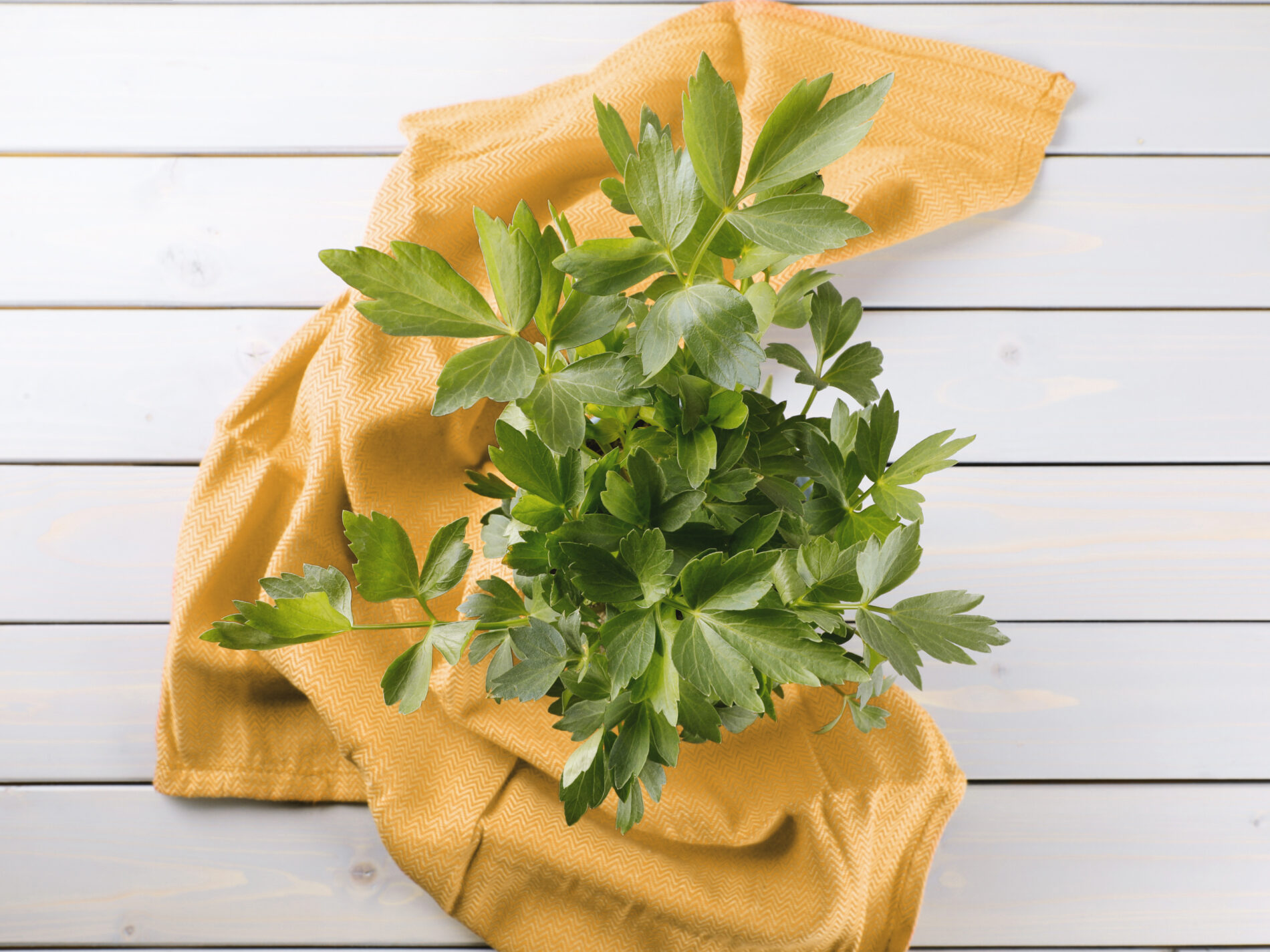Despite the obvious hint that the plant name gives us, it’s not supposed to bring us love but rather pain. According to the folk etymology, “lovage” is from “love-ache”, so it must hurt. (Actually, the followers of that false hypothesis say that “ache” is the Medieval name for parsley, but let’s not ruin the joke). Though in different European languages (Polish, Russian, German, Czech) lovage keeps that “love” root and sounds pleasant to the ears of native speakers.
Putting the vernacular hypothesis aside, “lovage” is thought to be derived from the earlier Latin ligusticum, “of Liguria”, where the plant was grown. Its flavour reminds that of celery and parsley with an undertone of fennel. There are two main types of the plant – sea lovage and black lovage. The first is also known as sea parsley or under the old Caledonian name shunis. Black lovage also bears a beautiful name – alexander.
In cooking, all parts of the plant are used, not only leaves, but roots, seeds, and flowers. The plant can introduce a clean, bright flavour to your dishes, especially when a nice amount of leaves is used. Try the “spring-is-coming” soup with alexander (don’t worry, we still mean lovage!) To cook it, you’ll need 2 liters of stock of your choice (can be replaced with water and bouillon cube). Melt 30 g / 2 tbsp of butter in a heavy-bottomed pot, add one medium finely chopped onion and fry it for 10 minutes, constantly stirring. Pour in your reserved stock and toss in 2-3 medium chopped potatoes, simmer until root veggies are tender. Then take 1 bunch of washed and dried lovage, put it right there and simmer for 5 more minutes. Finally, remove the pot from the heat and blend everything with a powerful immersion blender until the desired consistency. Season with salt and pepper, stir in a good dollop of heavy or sour cream and serve.
But, frankly, you don’t need a special recipe to taste the fragrant lovage. Just go ahead, chop up some leaves and add them to any dish you like. People all over the world use the plant in salads and soups, stews and morning omelettes. Add finely minced lovage to your favourite egg or potato salad, to the roasted chicken or pork chops, to the boiled potatoes or homemade pesto, to bone broth or barley soup. Use these alexanders the way you like!











What do you think?